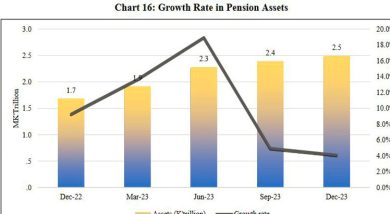Behold the lucky Pension generation
Last week, I had three missed calls from my dad. Knowing him very well, I knew something was up and so I dialed back. Unfortunately, he could not be reached. I believed he must have been out of cell-phone network. He usually needs to be on some strategic hilly places to be reached. It would be fair to say that my home village is network-challenged.
Fortunately, after a couple of hours, the cell phone went ringing again; it was the old man. When I answered, he went “chonde nimbilani sono nthena (please call me back now)”. I knew it was going to be a long story. Otherwise, he could just have told me what he had to say.
When I called back, I was challenged to unexpected topic, “mwawana munamwawi chomeni, nadi waliyose wa pa nchito mbwenu wawengi na pension? Kweni ise tawalimi watiganizira?” I immediately realised my cell-phone credit was going to blow-up. This was not going to be any short discussion. “nimuyimbirani pala nafika ku office wuli? (Can I call you when I get to the office?)”
When I got to the office, he was no longer in networkâ€â€he must have grown impatient staying on one ant-hill. But some days later we managed to link up. My dad pointed out that our youthful generation is very lucky to have a mandatory pension system in place. My dad mentioned that a good number of the poor old people we see today had been in good positions during their employed days but did not have a pension system to support them after they retired. So they retired and lived a miserable life.
The discussion jolted my mind to reflect on the significance of the mandatory pension to you and me. If you look around, most ‘old’ people have been sticking to job positions because they are afraid of what lies ahead after retirement. With this pension system, one can look forward to a number of job openings emerging over time as those reaching retirement would happily do so.
What will be happening is that as you work, you will be making contributions of not less than 5% of your salary towards your pension and your employer will be making an even higher contribution of 7.5% or more. As an employee, you could chose to make contributions higher than the 5% so that you could have a bigger take home during your retirement – it will be part of savings.
This money will be put into what is known as a pension Fund. This Pension Fund would then invest that money on your behalf in various areas like buying company shares and treasury bills. This would make your money grow over time such that when you retire, you will not just get what you and your employer contributed, but even the interest that accrued from your invested money.
So when you reach the minimum retirement age of 50 (or having worked in one organization continuously for 20 years), you can choose to get 40% of all your pension money at once (lump sum) then the rest will be paid to you on a monthly basis until you die. So you can start a business with the 40% you have collected, and still be given money each month to buy milk and sugar until you die. How sweet is that?
Additionally, your employer will be paying for your life insurance. This will help in buying pension for your dependants (4 youngest children and wife). So you don’t have to worry that you will lose your pension money when you die. Your children will enjoy the fruits of your sweat until they get married or reach 18 years (or 25 if still in school) whichever comes faster. But your wife will receive the pension for life. Wow!
Take note though that the Government’s spirit in agreeing to the pension bill is not to give you money for buying a house or do business when you retire, but to give you an assurance for a decent and dignified living during your retirement years.
By the way, you don’t have to be employed to have pension. You can, if self-employed like a farmer, contribute to any unrestricted Pension Fund and still be paid pension when you reach 50 years for the rest of your life.
How lucky are we to be born in a mandatory pension system – a number of developing economies still don’t have this!





